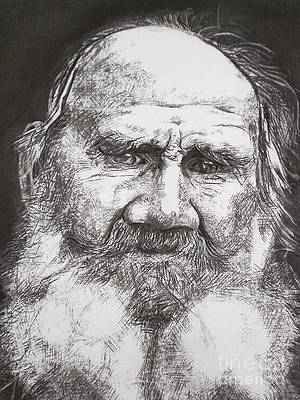Leo Tolstoy Archive
Written: 1912
Source: The Forged Coupon: And Other Stories, by Leo Tolstoy, 1912, Translated from the Russian by Herman Bernstein, published by Ogilvie Publishing Company, 57 Rose Street, New York, produced for Gutenberg.org by Judith Boss and David Widger, 2006.
Transcription/Markup: Andy Carloff
Online Source: RevoltLib.com; 2021

In the meantime Mahin, the schoolboy who had taught his friend Smokovnikov to forge the coupon, had finished his career at school and then at the university, where he had studied law. He had the advantage of being liked by women, and as he had won favor with a vise-minister’s former mistress, he was appointed when still young as examining magistrate. He was dishonest, had debts, had gambled, and had seduced many women; but he was clever, sagacious, and a good magistrate. He was appointed to the court of the district where Stepan Pelageushkine had been tried. When Stepan was brought to him the first time to give evidence, his sincere and quiet answers puzzled the magistrate. He somehow unconsciously felt that this man, brought to him in fetters and with a shorn head, guarded by two soldiers who were waiting to take him back to prison, had a free soul and was immeasurably superior to himself. He was in consequence somewhat troubled, and had to summon up all his courage in order to go on with the inquiry and not blunder in his questions. He was amazed that Stepan should narrate the story of his crimes as if they had been things of long ago, and committed not by him but by some different man.
“Had you no pity for them?” asked Mahin.
“No. I did not know then.”
“Well, and now?”
Stepan smiled with a sad smile. “Now,” he said, “I would not do it even if I were to be burned alive.”
“But why?
“Because I have come to know that all men are brethren.”
“What about me? Am I your brother also?”
“Of course you are.”
“And how is it that I, your brother, am sending you to hard labor?”
“It is because you don’t know.”
“What do I not know?”
“Since you judge, it means obviously that you don’t know.”
“Go on. . . . What next?”